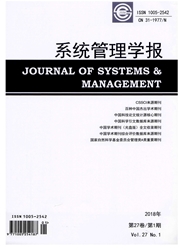

 中文摘要:
中文摘要:
针对零售商主导型供应链的运作特征,将供应商公平偏好纳入研究视野,在将零售商和供应商之间Nash谈判解作为公平参照点的基础上,通过构建供应商和零售商间的Stackelberg博弈模型,考察供应商公平偏好对供应链均衡策略的影响。研究结果表明:面对同样的收购价格,公平偏好将导致供应商生产质量水平降低;而为了激励供应商实现同样的生产质量水平,零售商将不得不提高收购价格。在供应商具有相对较小谈判权力的条件下,供应商的公平偏好将促使双方进行更为公平的交易,从而提高供应链整体效用。
 英文摘要:
英文摘要:
Considering the retailer-dominated supply chain, we incorporate supplier's fairness preference into our analysis, based on the Nash bargaining solution. By constructing a Stackelberg game between the supplier and the retailer, we study how supplier ~s fairness affects the game process and the equilibrium. The results show even though confronting with wholesale price at the same level, the supplier may lower the quality of product due to his fairness preference. In order to encourage the supplier to provide high quality product, the retailer need offer high wholesale price. It shows as well, when bargaining power of the supplier is relatively small, his fairness preference makes it possible to achieve fair trades and improve the benefits of the whole supply chain.
 同期刊论文项目
同期刊论文项目
 同项目期刊论文
同项目期刊论文
 期刊信息
期刊信息
